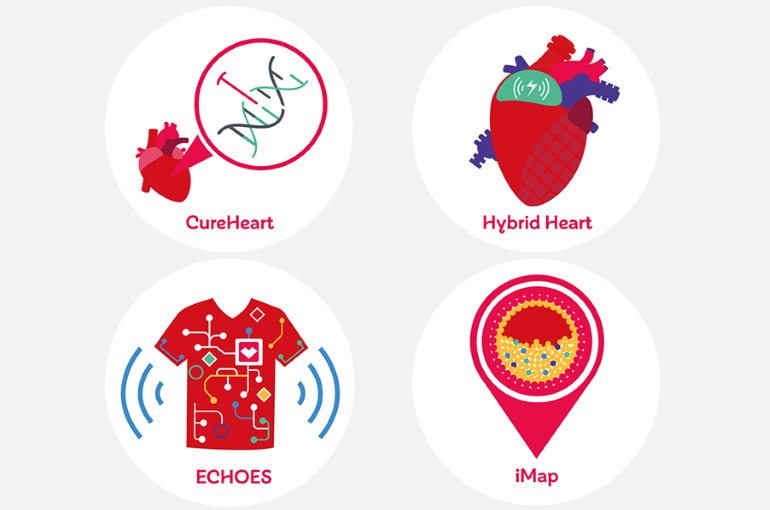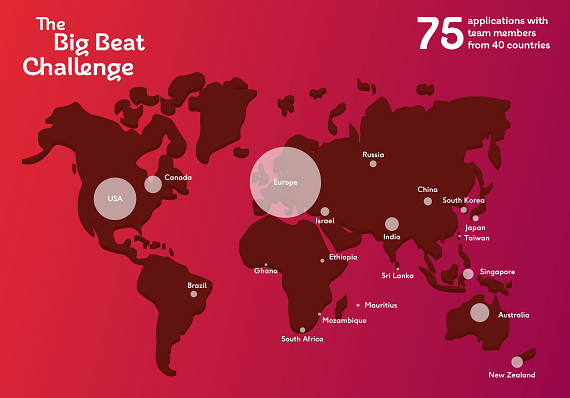
Our research
We have helped improve and save the lives of many people with heart and circulatory diseases. But these conditions still affect millions of families.

In 2019, we opened applications for the largest and most ambitious research programme in our 60-year history – the Big Beat Challenge. The Big Beat Challenge is a global competition for a single award of up to £30m. It is designed to spur the international research community to identify an opportunity for game-changing innovation in heart and circulatory science or medicine, that wouldn’t be possible without funding on this scale.
Experts from around the globe - spanning academia and industry - came together to form multinational world-leading teams to submit proposals. We received 75 applications, involving nearly 1400 team members across 40 countries.

Our Patient and Public Panel assessed the applications based on their potential to transform the prevention or treatment of heart and circulatory disease, and whether they demonstrated clear patient relevance. A panel of independent researchers and medical professionals then scrutinised the scientific rigour of the proposals. The decision on which applications to take forward was then made by our International Advisory Panel, made up of leading international figures from the world of science and medicine, in universities and industry, chaired by Sir Patrick Vallance, the government's Chief Scientific Adviser.
In January 2020, we announced four shortlisted teams, who are now competing for the opportunity to win up to £30m to transform an area of heart and circulatory disease research.
These four shortlisted teams are submitting detailed applications in June 2021, which will be assessed by external expert reviewers and the Patient and Public Panel before a final decision is made by the Independent Advisory Panel. We hope to announce the winner of the challenge by Spring 2022.
We believe the shortlisted projects all have the potential to save or improve the lives of people with heart and circulatory diseases, on a scale that wouldn’t be possible through traditional levels of funding.
First published 5 July 2021